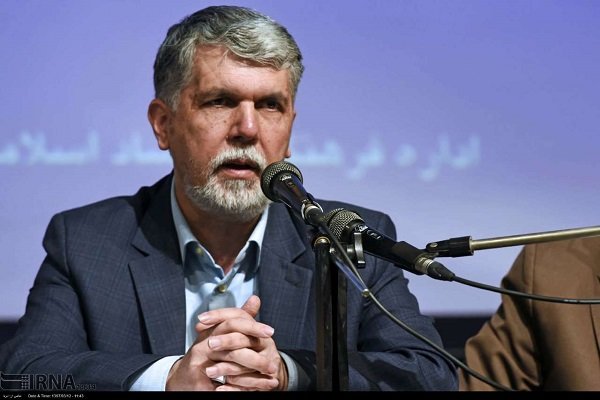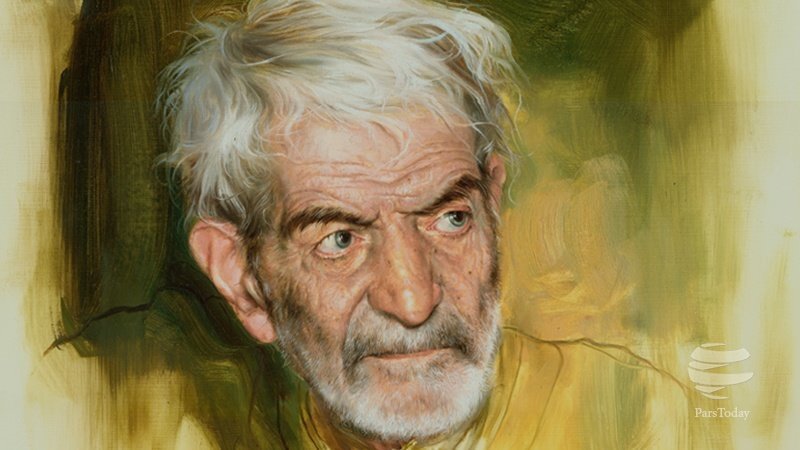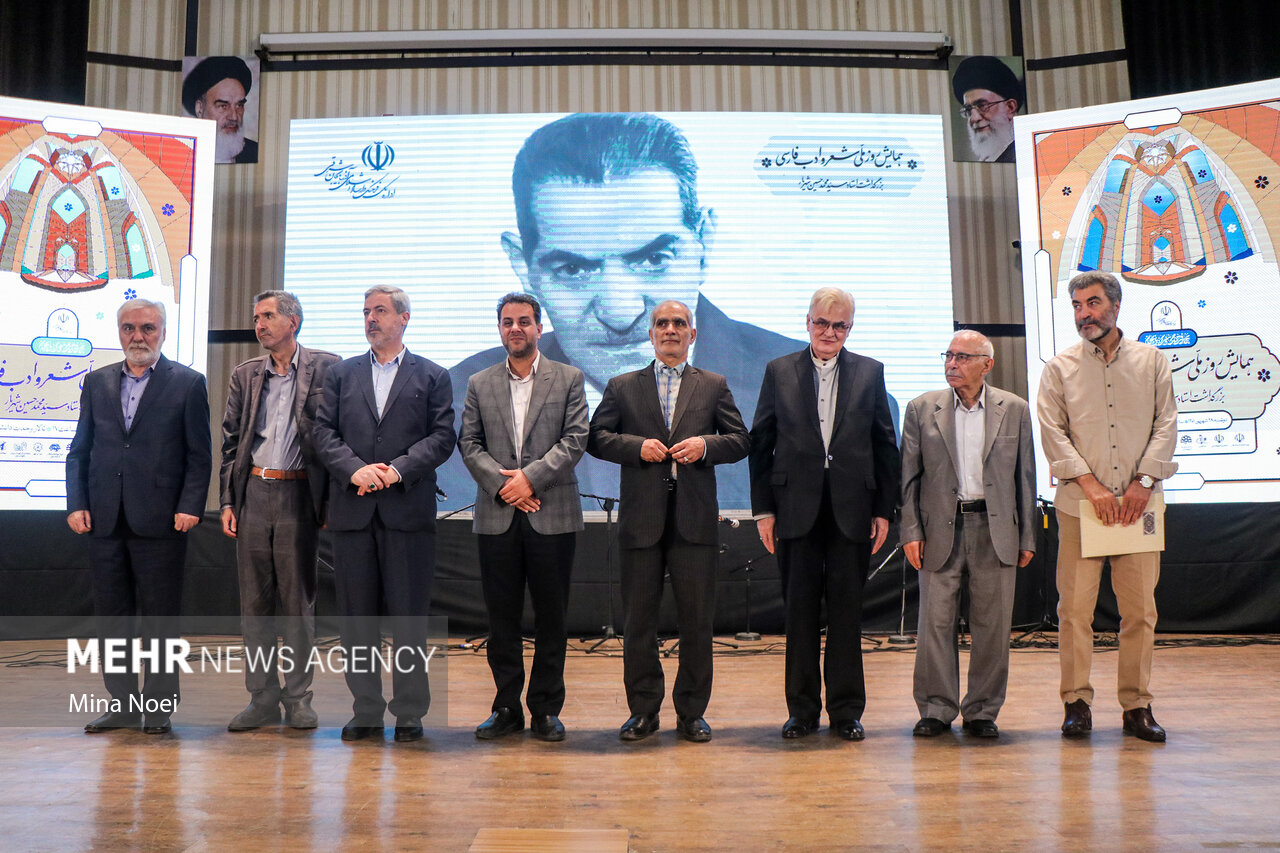On September 17, Iranians pay tribute to Seyed Mohammad-Hossein Behjat-Tabrizi, also known as Shahriar (1906-1988), a renowned Iranian poet. This date is honored as the "National Day of Persian Poetry and Literature".
Shahriar, born on January 2, 1906, near Tabriz City, East Azarbaijan Province, showed a passion for poetry from an early age. His first poems were published while he was still in high school in Tabriz.
Initially writing under his given name, Behjat, he later adopted the pen name Shahriar. His first poetry collection, 'Divan-e Shahriar', was published in Tehran in 1931 and received praise from notable poets and scholars for his eloquent language and innovative imagery.
While Shahriar wrote in various forms, including lyrics, quatrains, couplets, odes, and elegies, he gained acclaim for his ghazals, which were heavily influenced by the works of Hafez, another esteemed Iranian poet.
Shahriar published his first book of poems in 1929, with prefaces by Mohammad Taghi Bahar, Saeid Nafisi, and Pejman Bakhtiari. His poems are mainly influenced by Hafez. His most famous poem, “Heydar Babaya Salam”, is considered one of the best modern poems in the Azeri language. It has been adapted into several plays and translated into over 30 languages.
Heydar Baba is the name of a mountain where the poet spent his childhood, and many of his bittersweet memories are reflected in his works.
One of the major reasons for the success of Shahriar’s works is his use of slang and colloquial language in his poetry, making it accessible to a wide audience.
Shahriar died on September 18, 1988, in a hospital in Tehran. His body was then transferred to Tabriz and buried in Maqbaratoshoara (Mausoleum of Poets), where around 400 notable poets, artists, and mystics are also buried.
Leader terms Shahriar eternal personalities of Persian poetry

In 2006, during a meeting with members of the executive board responsible for organizing the congress commemorating the centennial of Shahriar’s birth, the Leader of the Islamic Revolution, Ayatollah Seyyed Ali Khamenei, described Shahriar as a great Iranian poet. He said that honoring Shahriar is, in fact, honoring Persian poetry and named him a prominent poet whose verses showed his wisdom.
"Shahriar is one of the eternal personalities of Persian poetry," he added.
Elaborating on Shahriar's masterpieces, he said that Shahriar’s poetry is a great heritage of Persian literature, even though Shahriar's mother tongue was Azeri.
He recalled the mystical theme and wisdom of Shahriar’s poems, citing his Azeri language poem “Heydar Baba”, in which Shahriar philosophically examined human existence and the nature of the universe.
Elsewhere in his remarks, Ayatollah Khamenei hailed the personality of the poet and said that he was faithful to God, maintained an independent attitude, and never bowed to power.
He went on to say that Shahriar showed his dedication to Prophet Muhammad (PBUH) and his Household in his poetry.
Shahriyar is one of the shining stars that embody Islamic, Iranian insight: Iran’s Culture Minister

Iran's Culture and Islamic Guidance Minister, Abbas Salehi, believes that Shahriyar is one of the shining stars that embody Islamic and Iranian insight, serving as a bridge between yesterday's and today's poetry.
Salehi emphasized the importance of cultural and civilizational symbols as spiritual identity cards that nations have safeguarded across generations to pass on to the current generation.
He further noted that Shahriyar represents the rich and genuine art of Iran, which has achieved a spiritual and artistic miracle by combining freedom and religion, and by composing poems in Persian and Azeri languages.
Furthermore, Salehi highlighted Shahriyar's global impact and described him as one of the forerunners in the development of poetry due to the wisdom and knowledge embodied in his poetry.

Shahriar is a highly esteemed figure in Iran's cultural heritage, particularly in the fields of poetry and literature.
He was interested in humanistic issues and in his poem "A Letter to Einstein," he critiqued the use of Einstein's scientific work for creating nuclear weapons. In addition to his literary talents, Shahriar was also skilled in calligraphy, proficient in playing the Setar, and had a deep passion for music.
Due to Shahriar's significant contributions to both Azeri and Persian literature and culture, September 18 has been designated as the National Day of Persian Literature and Poetry to commemorate the anniversary of Shahriar's passing.

Every year, several ceremonies and conferences are held to honor Shahriar in Tehran or Tabriz. Many people who specialize in studying his poems come together to discuss various dimensions of his character and works.
There is also the Shahriar Literary Award, which commemorates the Iranian renowned contemporary poet. The prize is awarded to institutions, organizations, and individuals whose efforts contribute to the works and life of Shahriar.
Shahriar undoubtedly reflects Iranian culture and identity. Such geniuses emerge only once every few centuries, and they have a significant influence on a nation's literary history.
Figures like Shahriar are the pillars of poetry and play a major role in the development of important literary periods. Shahriar holds a special position in Iran's poetry and literature and has left a brilliant footprint on Iran's literary history.
Reported by Amin Mohammadzadegan Khoyi

























Your Comment